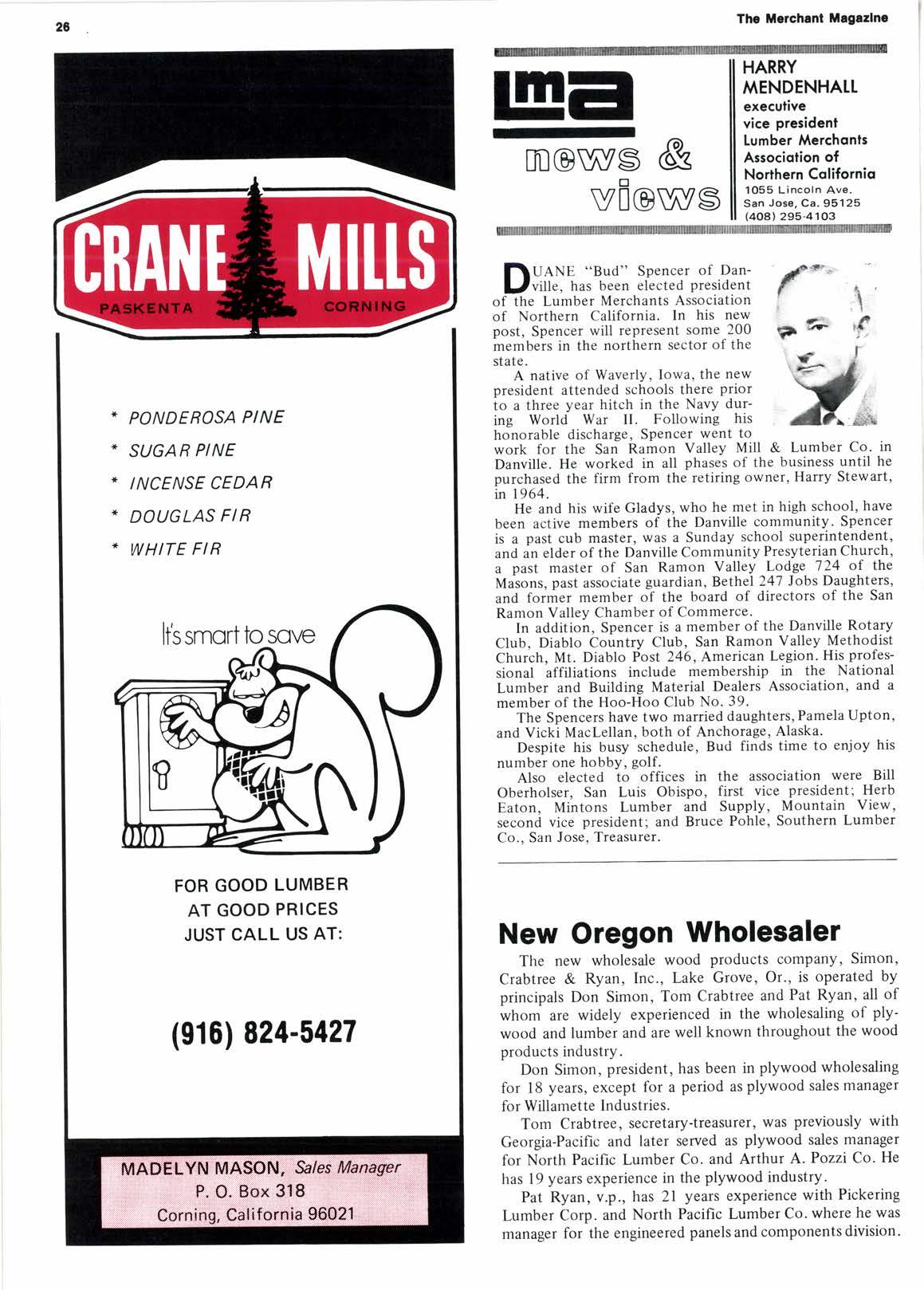
2 minute read
MOUNilAIN $il4il8$
By KENT MOXEY executive secretary
Avgn 400 lumber dealers from !Tacross the country Participated in The Conference With Congress last month.
The Monongahela decision and remedial legislation pending in Congress was the overwhelming issue. On the day prior to the individual visits with the Senators and Representatives, a briefing was held for the lumber dealers; an agenda had been established alloting time for coverage of four major areas of concern.
The first subject was Monongahela. After about two hours it was decided to forgo discussion of the last three topics and the entire afternoon was devoted to Monongahela and the bills in Congress designed to remedY the problem. Staff people from the U.S. Forest Service and the National Forest Products Assn. were there to answer questions.
The lumber dealers in attendance at that briefing session were thoroughly convinced of the importance of con-
WYOMING UTAH NEW MEXICO
vinciag Congress that corrective legislation must be passed in order to avert a crisis in the lumber industrY.
This appears to be a very controversial subject in Congress, and also very complex.
In simple terms, the lumber industry is for the "Humphrey Bill" and the preservationists are for the "Randolph Bill". The current problem seems to be that compromises and amendments are being considered. The final summary statement at the briefing session emphasized that the people in the lumber business want the Humphrey Bill passed as originally introduced with no amendments.
The Humphrey Bill would amend the Forest and Rangeland Renewable Resources Planning Act which was passed by Congress n 1974 under the leadership of Sen. Hubert Humphrey. It provides for long-range management programs to achieve effective and efficient multiple use goals in the use of our national forests.
Your interest and help are needed to convince Congress that PromPt passage of the unamended HumPhreY Bill is of vital importance to avoid serious disruption of the availability of forest products and of the negative effect that would have on home building.
Congress is currently working on this. Several bills have been introduced and many amendments are being offered. The debate is hot and heavy. They are interested in how the people back home feel - let them know what you think.
I know it is difficult to write, wire or call your Senator or Representative. Let me suggest another way of getting your message through: Look in the phone book under United States Government, "Representatives" and "senators" for their local office. Call there, identify yourself, and leave a brief message. Believe me, they will get the message.
Refer to our April bulletin and the brochure enclosed with it for more information on the Monongahela issue. Call your State Chairman of the Monongahela Action Committee Offer your help and advise your State Chairman of any contacts you have made and any response you have received from your Senator or Representative. They need to know what is happenilg.









